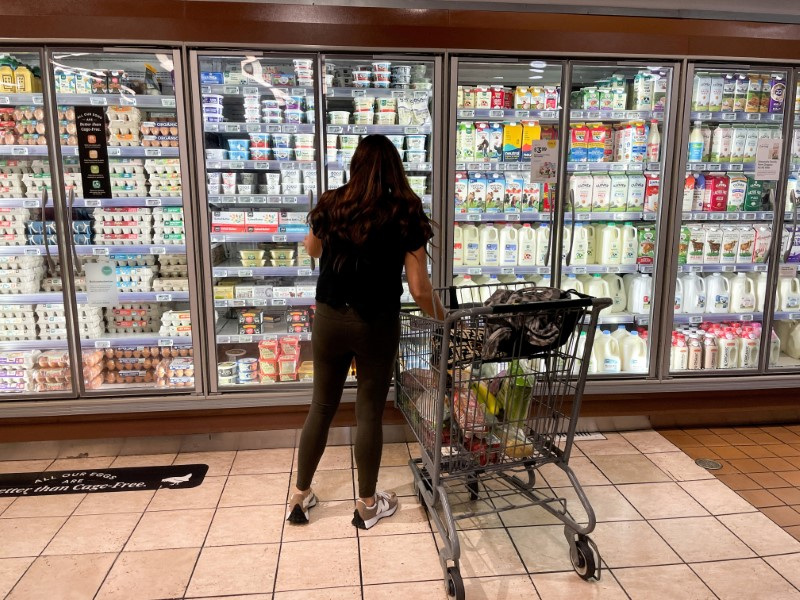
By Lucia Mutikani
WASHINGTON (Reuters) -U.S. consumer confidence deteriorated at its sharpest pace in 3-1/2 years in February while 12-month inflation expectations surged, offering further signs that Americans were growing anxious about the potential negative economic impact of the policies of President Donald Trump’s administration.
The Conference Board survey on Tuesday noted that “comments on the current administration and its policies dominated the responses.” It followed on the heels of surveys last week showing steep declines in business and consumer sentiment in February. Tariffs on imports, which Trump has already imposed or is planning to, have been singled out as the major issue in almost every survey of households and businesses.
Economists said unprecedented layoffs of federal government workers were also taking a toll on consumers’ psyche, which they said posed a risk to spending, the main engine of the economy.
“Americans are increasingly pessimistic about the outlook. No Federal government has ever before threatened government workers with mass firings and it is starting to scare the daylights out of consumers,” said Christopher Rupkey, chief economist at FWDBONDS. “The economy could well ground to a halt in the first quarter of the year as consumers stay home.”
The Conference Board’s consumer confidence index dropped 7 points, the biggest decline since August 2021, to 98.3 this month. Economists polled by Reuters had forecast the index falling to only 102.5. The third straight monthly decrease pushed the index to the lowest level since June 2024. It is now at the bottom of the range that has prevailed since 2022.
The cutoff date for the survey was February 19. Confidence slumped across all age groups, with sharp decreases in the 35-55 age cohort. Nearly all income groups reported a decline, with the exception of households earning less than $15,000 a year and between $100,000–125,000.
“There was a sharp increase in the mentions of trade and tariffs, back to a level unseen since 2019,” said Stephanie Guichard, senior economist, global indicators at the Conference Board.
Business and consumer sentiment soared following Trump’s victory on hopes for a less-stringent regulatory environment, tax cuts and low inflation. Trump, a Republican, was elected on promises to lower prices. In his first month in office, Trump slapped an additional 10% tariff on Chinese imports. A 25% levy on imports from Mexico and Canada could kick in next week. Trump this month raised tariffs on steel and aluminum imports to 25%.

